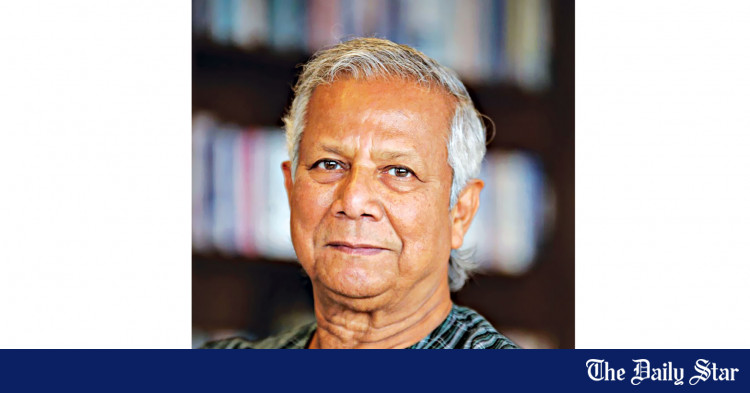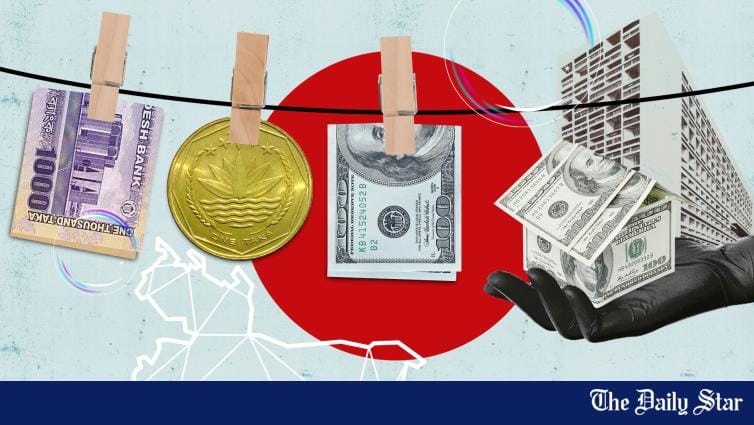Is it possible to bring back the laundered money?
It is normal that the individuals, who fled the country after 5 August, will need more foreign currency to alleviate their financial crisis abroad with the help of their family members and relatives. Our suspicion is that the recent significant surge in demand for remittance dollars is largely driven by this issue.
Moinul Islam
Published: 28 Mar 2025, 18: 05
During the 15 and a half years of autocratic rule under Sheikh Hasina, the banking sector suffered the most from looting, which led to 11 out of the 61 banks in the country being on the verge of bankruptcy. Despite there being no need for 61 banks in the country, Hasina's arbitrary decisions granted licenses for so many banks. This was done to provide unbelievable opportunities for her relatives, influential leaders of the Awami League, oligarchic businesspersons, and those who turned into “rubber barons” to loot capital from these institutions.
Despite repeated objections from the late finance minister Abul Maal Abdul Muhith, Hasina could not be dissuaded from making such reckless decisions. After the removal of Hasina’s autocratic rule on 5 August last year, the current interim government took power on 8 August, and Ahsan H Mansur was appointed as the governor of Bangladesh Bank. Over the past six months, he has been making bold decisions to rescue the banking sector from the brink of collapse, and we can see the positive results now.
Among the 11 banks, seven were looted by the bank robber S Alam from Chattogram. Those are: Islami Bank Bangladesh, SIBL, First Security Islami Bank, Union Bank, Commercial Bank, NRB Global Bank, and Al-Arafah Islami Bank.
Until 2017, Islami Bank was mainly controlled by Bangladesh Jamaat-e-Islami. At that time, it was the largest private sector bank in the country, handling nearly 30 per cent of the country’s remittance flow. This strong bank was brought under the control of S Alam under Hasina’s direct orders and support. In seven years, between 2017 and 5 August 2024, S Alam embezzled nearly Tk 700 billion from Islami Bank, pushing it to the verge of bankruptcy.
S Alam looted almost Tk 1,500 billion from his seven banks and smuggled it abroad. The corrupt land minister of the fallen government, Saifuzzaman Chowdhury, looted the United Commercial Bank.
The White Paper drafting committee claims that during Hasina’s rule, the country's economic system transformed directly from “crony capitalism” to “kleptocracy”.
Adviser to the fallen Hasina government, Salman F Rahman, who owns BEXIMCO Group, has outstanding loans worth more than Tk 500 billion in various banks. The 11 banks mentioned have been unable to return depositors’ money for several months, but some banks have begun recovering. The success of Islami Bank and United Commercial Bank was announced by Ahsan H Mansur himself.
The White Paper drafting committee claims that during Hasina’s rule, the country's economic system transformed directly from “crony capitalism” to “kleptocracy”.
During her autocratic regime, Hasina and her family, relatives, party leaders, certain oligarchic businessmen, and capital looters formed an institutional system for looting hundreds of thousands of crores of taka from government projects. The heart of this looting operation was Hasina’s family, the looting of oligarchic businessmen, thousands of corrupt politicians, and bureaucrats.
Research by the White Paper drafting committee revealed that, under Hasina’s 15 and a half years of plundering system, an average of 16 billion dollars a year - totaling 234 billion dollars - was embezzled and laundered abroad.
The banking and financial sector suffered the most, followed by the energy and power sector, infrastructure, and information technology sectors. The United Arab Emirates, Canada, the United States, the United Kingdom, Singapore, Malaysia, Hong Kong, India, and several “tax havens” were identified as the primary beneficiaries of this laundered money.
It should be remembered that after the mass uprising, the economy was able to avoid a meltdown primarily due to the surge in remittance flows through legal channels, export growth, and the stabilisation of import expenses.
After the fall of Hasina’s autocratic rule, almost all of the looters and money launderers, except for a few, fled abroad. Many of these fugitives, in exchange of a few lakhs to several crores of taka, crossed the border secretly, with the assistance of the Border Guard Bangladesh (BGB), Border Security Force (BSF), and organised smuggling syndicates, mainly to India. After several months, the majority of them are now facing temporary financial crises.
Therefore, it is normal that these individuals will need more foreign currency to alleviate their financial crisis abroad with the help of their family members and relatives. Our suspicion is that the recent significant surge in demand for remittance dollars is largely driven by this issue.
In this case, there is no alternative but for Bangladesh Bank to take strict action. Bangladesh Bank has already issued a directive that the price of the dollar should not exceed Tk 123 per dollar.
The directive states that from 1 January 2025, the same rate will apply to remittance dollars and export earnings dollars, and anyone violating this will be fined. Bangladesh Bank has abandoned the “crawling peg” policy in determining foreign exchange rates and has decided to set the exchange rate for the dollar twice a day, allowing market fluctuations to determine the dollar's price, effective since 12 January.
I believe this is the correct move. (At the same time, from 5 January, large transactions must be reported daily to Bangladesh Bank.) I would like to add that in addition to fines, if exemplary punishments such as arresting the concerned officials and canceling the licenses of the institutions are decided upon, the exchange houses and banks will wake up.
It should be remembered that after the mass uprising, the economy was able to avoid a meltdown primarily due to the surge in remittance flows through legal channels, export growth, and the stabilisation of import expenses. The fall in the country’s foreign exchange reserves has been stopped, and they have been brought back on the path of growth.
After being ousted from power on 5 August 2025, in the mass uprising, over the past six and a half months, it has been proven to economists that even if Hasina had not lost power as an autocrat, she could not have saved the country’s economy from an inevitable economic meltdown. In this regard, we must thank Almighty Allah for saving us from the shame of becoming another Sri Lanka.
The timely policy changes made by the interim government have gradually begun to revive the economy. However, I do not believe that the 234 billion dollars laundered abroad can ever be brought back to the country.
*Moinul Islam is an economist and former professor at Economics Department of Chittagong University
*This article, originally published in Prothom Alo print and online editions, has been rewritten in English by Rabiul Islam.


www.thedailystar.net









































